At DANDRITE, talent development is a core priority. We support researchers at all career stages—from students to early-career group leaders—by fostering an environment of scientific excellence, collaboration, and mentorship. Our commitment is reinforced through several key initiatives: our Scientific Advisory Board provides expert feedback and strategic guidance to support scientific growth; annual group leader retreats create a dedicated space for reflection, planning, and cross-group collaboration; and our peer-to-peer mentoring initiatives encourage a strong, supportive community where knowledge and experience are shared openly. Together, these efforts form the foundation of our mission to nurture the next generation of neuroscience leaders and advance our research.
In 2024, three of our group leaders concluded their 9-year tenure and transitioned toward independent academic careers, marking a significant milestone in their professional development. This transition reflects the core goal of DANDRITE’s talent development strategy: to empower researchers with the skills, support, and visibility needed to establish themselves as leaders in neuroscience. We take pride in seeing our alumni continue to contribute meaningfully to the field, both nationally and internationally, and remain committed to providing a strong foundation for future generations of scientists.
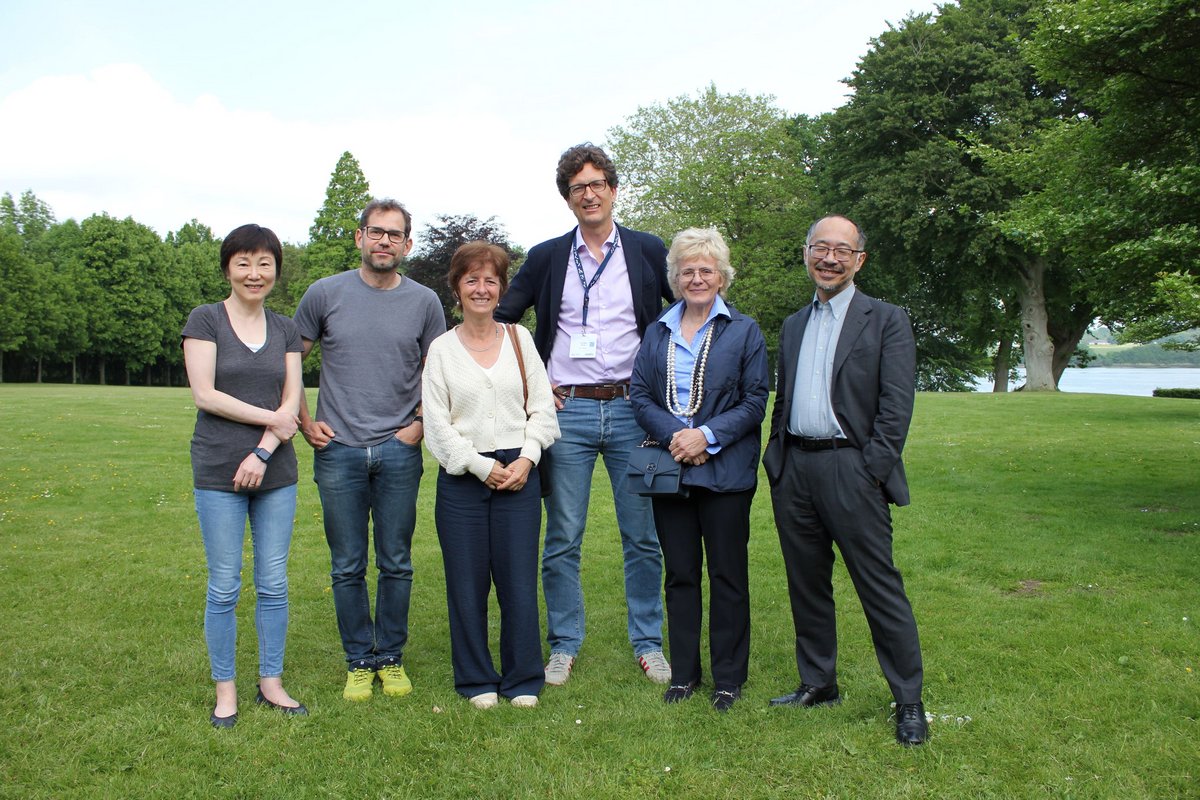
DANDRITEs met with the Scientific Advisory Board at Sandbjerg Manor in May 2024 for 2,5 days of scientific presentations, poster sessions, team building, meetings, discussions, and networking. Meetings with the SAB are crucial to DANDRITE’s continuous development and to be able to support excellence in research in a world that is increasingly demanding. Some of the highlights from the following written report 2024 were DANDRITE's successful transition to its second generation of young group leaders, the high-impact publications by researchers Denham, Kvitsiani, and Nabavi, and the successful recruitment of four new group leaders. Additionally, the institute's ambitious research programs, the strong presentations from fellows, and the excellence of its administration all contributed to reinforcing DANDRITE’s role as a leading talent incubator and a hub for cutting-edge neuroscience research.
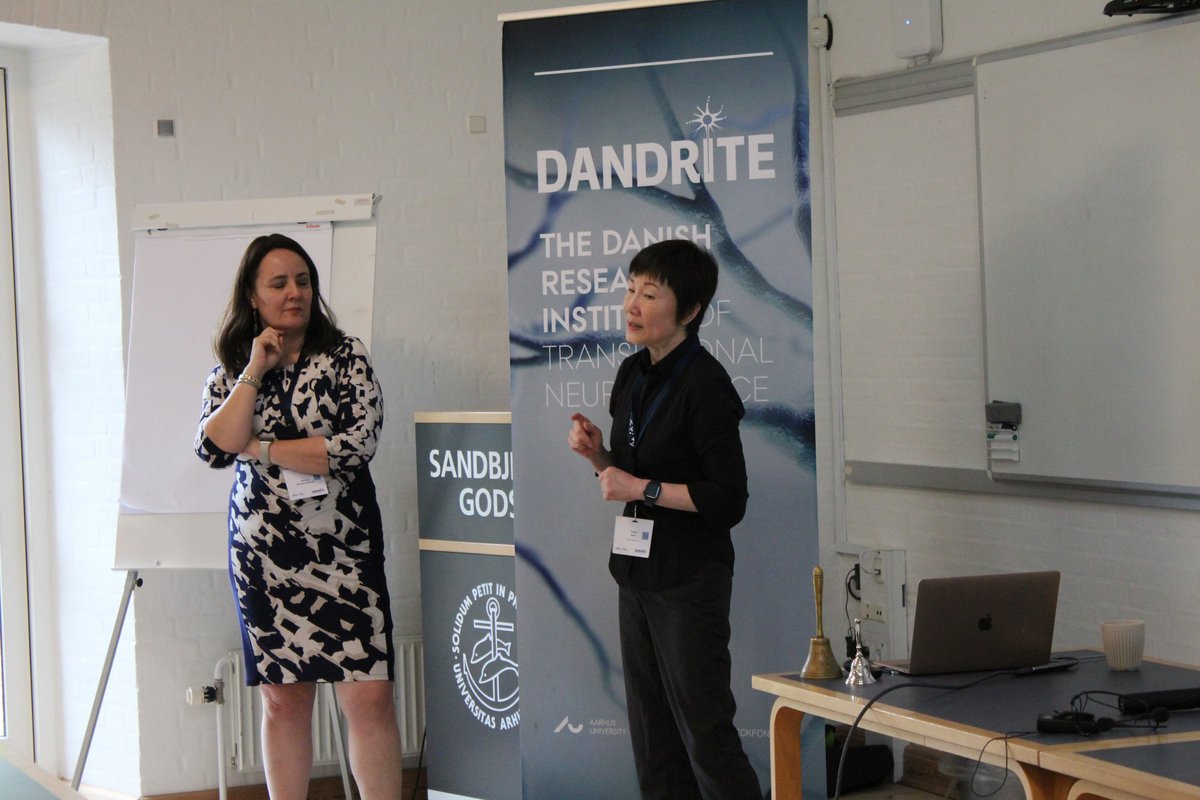
Professor Yang Dan, from the University of California, joined the DANDRITE Scientific Advisory Board (SAB) in 2018. In 2024, she attended her final SAB assembly as she is now rotating out of the board. According to Yang Dan, it was the youthful and experimental spirit of DANDRITE that particularly motivated her to become a member of the SAB. During her SAB appointment, she welcomed a new cohort of Group Leaders, whom she describes as notably different from the first generation, with a broader and more diverse research focus. Over the past six years, she has witnessed the maturation of both the organisation and its research. She does not doubt that DANDRITE has firmly established itself with a strong presence both nationally and internationally.
"In Denmark, DANDRITE has certainly brought neuroscience to a new level, especially outside of Copenhagen. But also in the areas of systems neuroscience, the impact in that subfield has been tremendous. It is very difficult to overstate the impact."
- Professor Yang Dan, outgoing member of the SAB
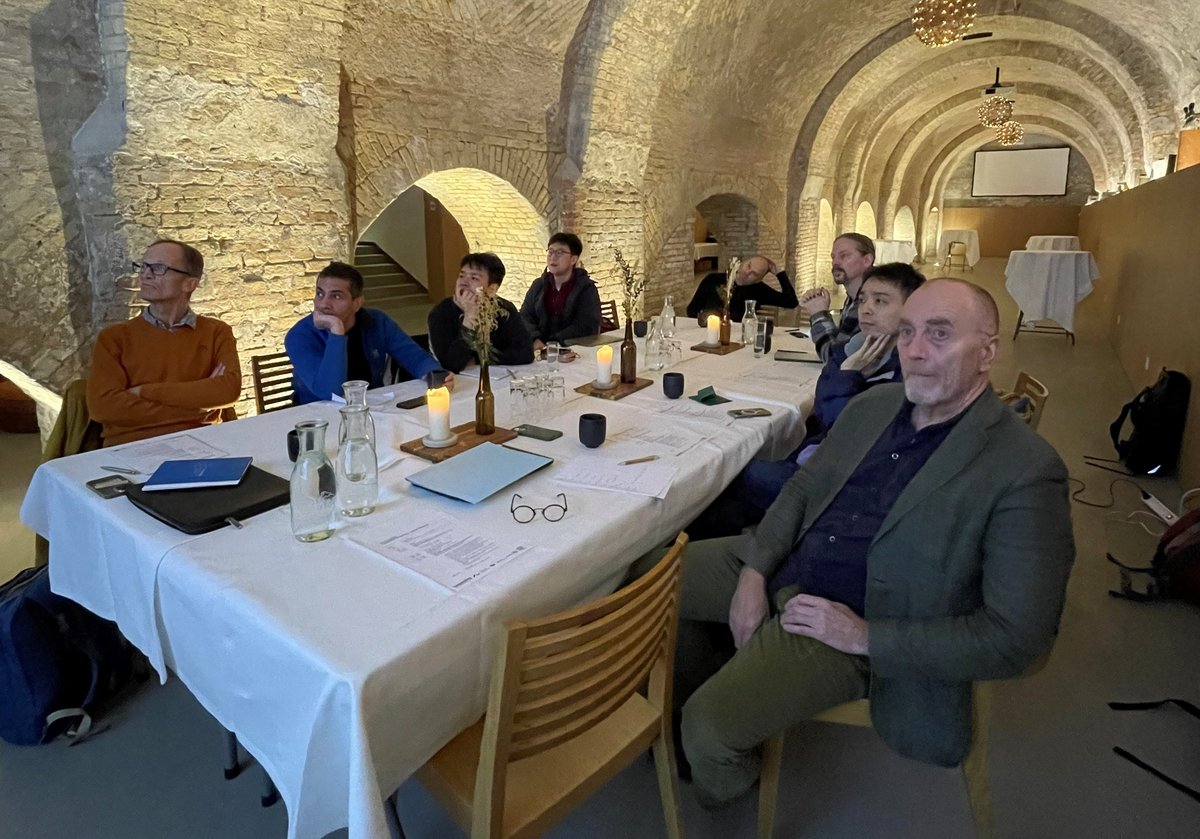
Every year the DANDRITE Group and Team Leaders meet with the Senior Group Leaders and specially invited collaborators for a one-day retreat. These retreats provide an opportunity for DANDRITE's researchers to present their latest findings, engage in scientific discussions, and share ideas in a collaborative setting. The retreats are not only a platform for presenting research but also for building stronger relationships between group leaders, encouraging interdisciplinary work, and aligning DANDRITE’s overall scientific goals. The events are marked by high-quality presentations, robust discussions, and a focus on supporting the development of ambitious and high-risk research programs. This year Anna Mathia Klawonn presented her research prospects.
"One of the most amazing parts about being in the DANDRITE Group Leader program is the possibility for scientific sparring and feedback. At the yearly GL-TL retreat we get input from colleagues and field experts, as well as clinical experts to ensure the translational view on our research. I am really grateful for the honest sparring I received on my research program from Sadegh Nabavi and Anders Fink Jensen, as well as my from director Poul Henning Jensen and DANDRITE colleagues it surely helps shape up my program and keep focus on the most important aspects of my scientific studies."
- Group Leader, Anna Mathia Klawonn (started in January 2024)
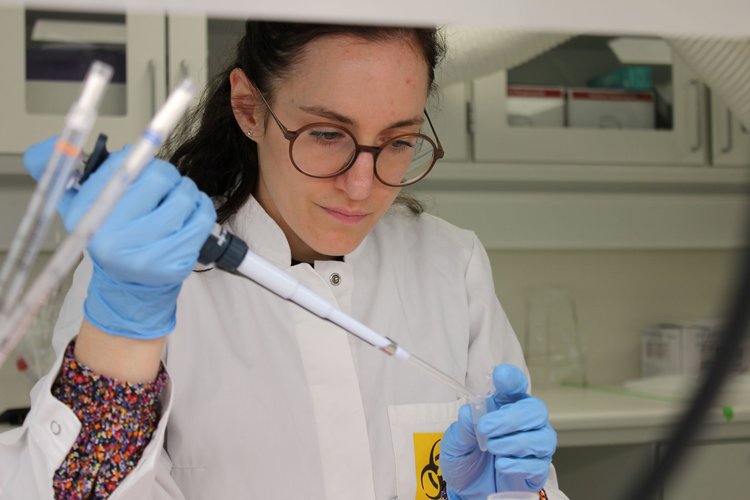
Silvia Turchetto is a postdoctoral researcher in Chao Sun's Lab. Her path led her from Italy over Stockholm and Liége to DANDRITE, where she chose to pursue postdoctoral work under Chao Sun, drawn by the opportunity to use advanced imaging techniques like DNA PAINT to study protein degradation at synapses.
At DANDRITE, Silvia has found space to build both her scientific and soft skills. She regularly presents her work in department seminars and poster sessions and actively engages in collaborations across campus. She also participated in international conferences and gained valuable experience through teaching abroad. These interdisciplinary connections, she explains, are key to growing a strong research network and sparking new ideas. Mentorship is central to DANDRITE's talent development culture, and Silvia highlights the impact of her supervisor, Chao Sun. Under his guidance, she’s refined her scientific writing—successfully securing a Lundbeck foundation fellowship—and developed skills in leadership and communication. Through teaching assistant roles and day-to-day supervision of students, she has also stepped into mentoring roles of her own. Silvia has also expanded her toolkit by combining new imaging methods with bioinformatic analysis of large-scale datasets, bridging experimental and computational approaches to understand synaptic protein degradation.
"Being at DANDRITE has truly shaped my journey as a researcher. The mentorship I’ve received from Chao and the opportunities to present my work, collaborate with others, and develop both my scientific and soft skills have been invaluable. It’s not just about the research – DANDRITE has fostered a community where I feel supported, challenged, and encouraged to push the boundaries of my knowledge."
- Silvia Turchetto
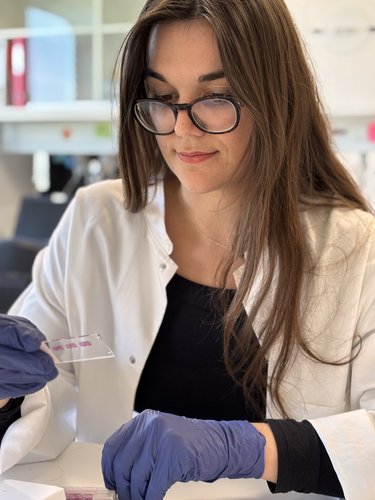
Pia Boxy completed her PhD in 2024 in Professor Anders Nykjær's Lab under supervision of Assoc. Professor Lilian Kisiswa. For her, mentorship was not just a support system—it was the backbone of her scientific journey. Her doctoral research explored the role of the SorCS2 receptor in cerebellar development and its implications in both motor and non-motor behaviour in mice. Driven by a fascination with the human mind and behavior, she navigated the challenges of early PhD life—including self-doubt and direction-finding—with the guidance of mentors who helped her grow both scientifically and personally.
She describes her mentorship as a transformative partnership that evolved from hands-on training to collaborative consultation, empowering her to develop her own scientific voice. Key moments—such as support during her midterm evaluation, encouragement to pursue independent interests abroad, and opportunities to publish and communicate science to broader audiences—marked milestones in her development.
Now mentoring others herself, she carries forward lessons of trust, adaptability, and the importance of giving space to grow. Looking ahead, she credits mentorship with not only shaping her research but also giving her the clarity and confidence to pursue a fulfilling academic career.
"I believe that most people who stay in academia, do so because they’ve had good mentorship. The right support and a meaningful project can make all the difference. Academia is tough—full of uncertainty and rejection—but one of the most valuable lessons my mentor taught me is that if you’re truly passionate about science and can embrace both the highs and the lows, it can become the most rewarding job in the world."
- Pia Boxy
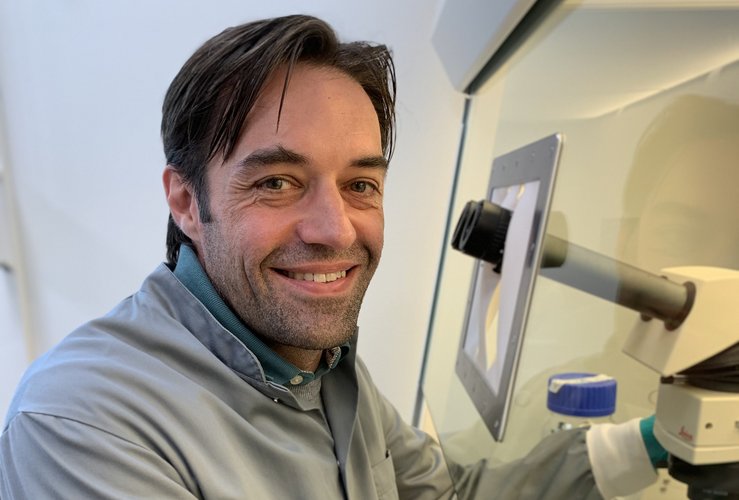
Appointed in 2013, Mark Denham was the first researcher at Aarhus University to work with stem cells. His pioneering efforts led to the development of a method for generating dopamine-producing neurons from pluripotent stem cells, aiming to treat Parkinson's disease. By 2024, Denham's research had progressed to the brink of clinical trials. After stepping down as a Group Leader, he continued as an Associate Professor at Aarhus University and secured the Lundbeck Foundation’s Frontier Grant in early 2025 to advance his UNIPOTENT project toward commercialization.
Mark Denham is now an Associate Professor at the Department of Biomedicine at Aarhus University and a DANDRITE affiliated researcher.
“If you had asked me back when I was at Karolinska if, after nine years, I would be in this position—publishing a strong paper and developing the world’s best method for generating dopamine neurons as a therapy for Parkinson’s patients—I would have said, ‘That would be amazing.’ But to now also be at the cusp of entering a clinical trial is incredible.”
- Mark Denham
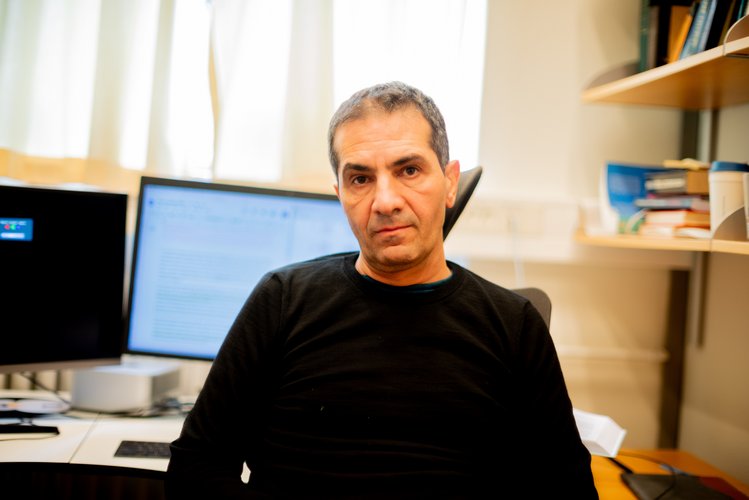
Serving as a Group Leader from 2015 to 2024, Sadegh Nabavi's research delved into the synaptic and circuit-level processes of memory formation and consolidation. His lab investigated how animals rapidly learn natural behaviors and how the brain associates events separated by time, despite neurons' brief signal durations. In 2024, Nabavi transitioned from his role as Group Leader but remained affiliated with DANDRITE, continuing his impactful research within the community. That same year, he was awarded the prestigious Lundbeck Foundation Ascending Investigator grant, recognizing his significant contributions to neuroscience and his promising future trajectory in the field.
Sadegh Nabavi is now an Associate Professor at the Department of Molecular Biology and Genetics at Aarhus University and PI of the Center of Excellence, PROMEMO.
“You can’t ask someone to take a risk and guarantee success at the same time. Risk is, by its nature, unpredictable. From my perspective, we accomplished three major breakthroughs that, as far as I know, no one else has achieved. We faced many challenges, but we overcame them.”
- Sadegh Nabavi
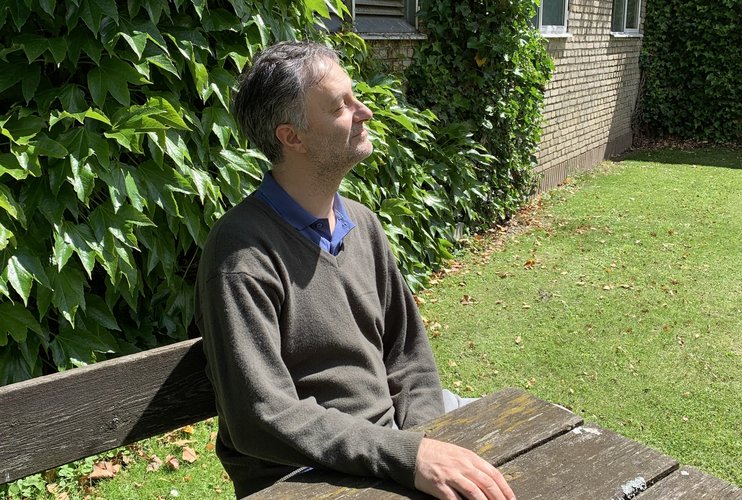
Joining DANDRITE in 2015 as one of its inaugural Group Leaders, Duda Kvitsiani focused on unraveling the neural mechanisms underlying decision-making. His research provided groundbreaking insights into how the brain stores and utilizes memories of past rewards and actions to inform future decisions. This work offered the first circuit-level explanation of the prefrontal cortex's role in integrating past experiences to guide behavior, with implications for understanding disorders like depression and schizophrenia. In 2024, Duda Kvitsiani departed DANDRITE to embark on a new scientific endeavor at Southern Illinois University in Carbondale, USA.
"I conducted experiments here that would have been impossible elsewhere. In many places, research is confined to narrow topics, but here, no boundaries were limiting our exploration, and that has had a profound impact. Discoveries like these are rare, but investing in research with an open mind ultimately yields breakthroughs."
- Duda Kvitsiani